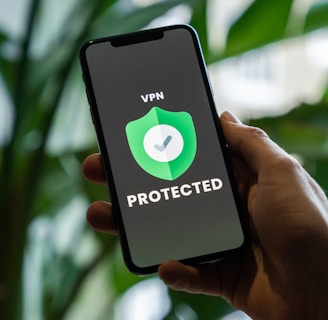What is a VPN
Learn what is a VPN
9/25/20242 min read


Virtual Private Network (VPN)
When devices are connected to a network, the internet activities in the network is usually monitored and logged by the local ISP since they are the one providing you with internet access and essential network devices like routers. However, the data they collect and log from the internet activities of users might not exactly be private and in fact be shared with the government or other advertising companies. This is why we need a VPN. Using a VPN will mask users IP address and will bypass and redirect the internet requests and search to another server which is the VPN server. This also ensures to hide the ip address of our router which is typically the public ip address assigned to the router.
When a VPN is used and when the user browse the internet it goes through the VPN server and the ISP providers can only see the ip address of the VPN server. VPN also encrypts the data being browsed. The data sent and received through the internet all will be done through a secured VPN tunnel which will be encrypted using a VPN.
Some of the VPN features:
I. Traffic Obfuscation: Traffic obfuscation is a feature where the VPN connection makes it look like a non-VPN connection by making the traffic sent through the connection look like a normal regular connection. This feature is used to bypass the network settings where they limit the use of VPN in certain countries or areas.
II. VPN split tunnel: A Split tunnel indicates that only the internet traffic that are supposed to be routed through the VPN is sent using a VPN and the rest all the internet activities will not be sent while still using the benefit of the VPN. This connection typically provides more sense of privacy to the clients/ users
III. Ad blocking: Some VPN providers provide an ad-blocking feature where the user can browse without coming across any advertisements during their browsing experience.
IV. Kill switch: This is a safety feature where in case the VPN connection fails or drops, the VPN will disconnect the user's device from the internet automatically ensuring IP address leakage won't happen and thereby protecting the user's data and privacy.
V. Double VPN feature: the user’s data will go through multiple VPN servers before it reaches the destination server.
VI. TOR connection: The Onion Router (TOR) is a feature where the VPN uses Tor algorithm to send and receive traffic over the internet where the user data traffic goes through multiple Tor servers known as relays/ nodes before reaching the final destination making it almost impossible for the destination server to know where the initial connection/ traffic originated.
Cybinfos
© 2024. All rights reserved.
